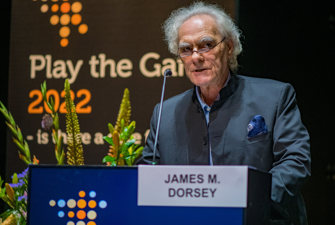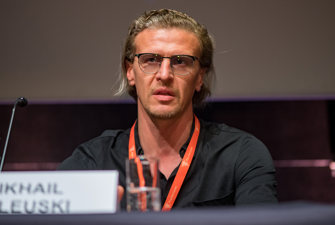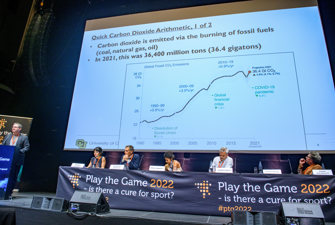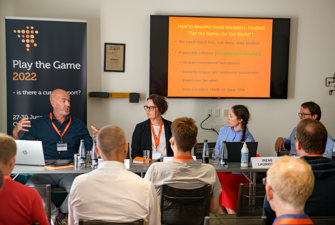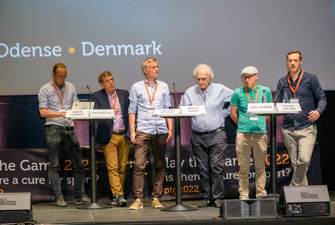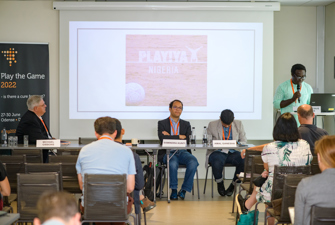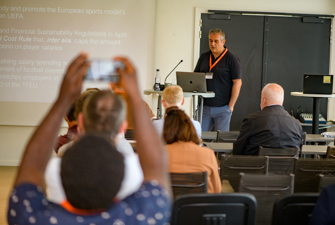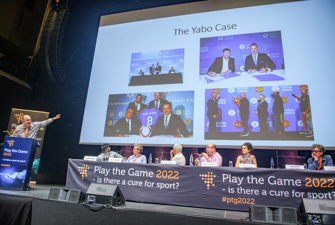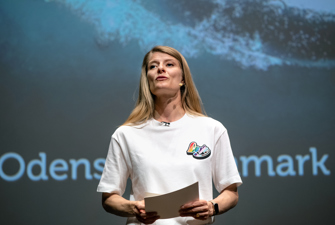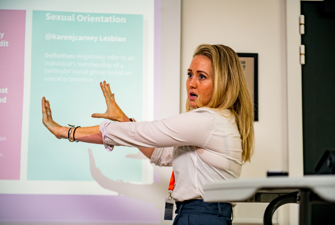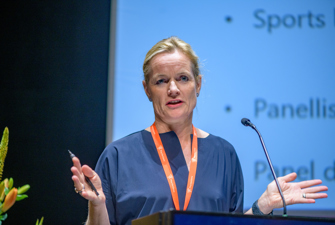Play the Game may be the correct forum to develop a sports anti-corruption agency
Governance experts speaking in a Play the Game 2022 session have lost faith that governments and sports organisations will handle corruption and crime in sport, and they suggested that Play the Game could be the right forum to kickstart an anti-corruption agency.
Play the Game could be the correct forum in which to develop an agency to protect sports from corruption. A rough outline of goals and how such an organisation might be structured could be drawn up for discussion at Play the Game 2023.
“We cannot wait for public organisations or sports organisations to do it,” said Drago Kos, Chairman of the OECD Working Group on Bribery in a session at Play the Game 2022.
“I see that Play the Game is the environment where this could happen. We need to develop a first draft to convince governments. I am absolutely convinced we can do it.”
The idea of a global anti-corruption agency for sport isn’t new. However, none of the panellists or audience expressed any disagreement that the level of expertise present at Play the Game could be the right environment for such an initiative to develop.
There is enough money in sport for an agency
It was agreed that cost should not be an issue, given the money generated by international sporting organisations and the money they already spend on investigations.
“How much money has the IOC paid to Richard McLaren’s company for investigation reports?” asked investigative reporter, Jens Weinreich. “There are millions already paid for investigations.”
“We’ve had an agency for doping for 20 years,” said Alex Phillips, independent consultant and administrator of the World Football Remission Fund. “Why not for any other integrity issues?”
Phillips pointed out that former FIFA President Sepp Blatter had committed CHF 500 million to a museum in a process that is, incidentally, under investigation for alleged criminal mismanagement. “Sport has the money,” he added.
“Should we just stop waiting?” asked Jens Sejer Andersen, international director of Play the Game. “Should we just go ahead in some way? We, together, with all the competencies that have been shared in this room and other rooms at previous Play the Game events?”
“It is very rare that an investigation starts at the state prosecutor’s office. It normally starts with investigative journalists doing their work. Play the Game could be the catalyst for a very specific proposal.”
State reticence to accept responsibility for sport
Speakers expressed frustration at the difficulty in getting states to accept that crime in sport is their responsibility.
“Crimes are crimes,” said Paolo Bertaccini Bonoli, a consultant to the UN Office on Drugs and Crime (UNODC) on sport and organised crime. “The autonomy of sport has no role.”
Bonoli highlighted the United Nations Convention Against Corruption updating its 2017 resolution ‘Safeguarding Sport from Corruption’ as an example. The resolution was updated in December 2019, which was the first time it had specifically referred to organised crime as a danger to sport. He said that many countries were not ready to engage with a problem which they saw as sport’s problem to solve.
“In 2017, member states were not ready to welcome that organised crime would be clearly indicated in the resolution,” he said. “It took years to have organised crime clearly indicated as a component of the process.”
“Years ago we had WADA, which addressed doping. All of the rest was not considered, not addressed and when addressed, weakly addressed.”
Bonoli outlined how governmental initiatives may still be useful in forcing states to accept responsibility for eliminating crime and corruption in sport. In December 2022, the Italian Ministry of the Interior will host an international conference of ministries to examine crime in sport.
UN Special Rapporteur on Sport may be needed
However, it was pointed out that most international sporting federations are located in Switzerland for a very good reason. And Switzerland doesn’t want to kill its cash cow.
“The Swiss government is not going to live up to its moral and ethical responsibilities, because having low levels of regulation is precisely what attracts all these international institutions to make their home in Switzerland”, said Akaash Maharaj of the Canadian Center for Ethics in Sport.
“The government is not interested in taking a hard line with these institutions for fear it will drive them to other jurisdictions.”
“That fact, however, in no way mitigates the responsibility of other jurisdictions to apply their laws to institutions operating in their countries,” continued Maharaj, who pointed out that when sport operates overseas, international sporting federations are subject to local law.
Maharaj suggested that a UN Special Rapporteur on Sport is needed. “International sport is not a game. It is literally a question of life and death. If we don’t push back against the darkness, then nobody will do it for us.”
The reticence of sport to accept the need for an agency
Although sport has the money to create an anti-corruption agency, historically it has never had the appetite to create one. Panelists assessed whether that had changed, and also whether sport should be involved in creating such an agency in the first place.
Weinreich presented a video montage where he questioned Sepp Blatter, Pat Hickey, and Un Yong Kim from the Olympic Movement about whether an independent agency was needed. All answered no, and all have been involved in corruption cases.
Operational difficulties
“There are governments that will never join,” said Kos.
“A convention would, legally, be the clearest solution. But in the era of anti-globalism, in the era where we have three global superpowers fighting for supremacy, at least one of them would never agree. I think we’d better forget the idea of a convention and look for some other type of legal agreement such as a charter, which would set a basic framework for others to join.”
A multi-stakeholder approach is complicated,” pointed out Bonoli. “It requires putting together specialised competencies.”
Bonoli said that the organisational model is crucial to a multi-stakeholder approach, as the risk that it will not work is very high. However, he also warned that cooperation with sport is essential, as is “substantive independence.”
Panellists agreed that informal networks are relevant, which is why Play the Game presents the perfect platform.
Andy Spalding pointed out that an anti-corruption agency for sport could be used to promote compliance. “Can we leave anti-corruption legacies in host countries?” he asked.
“There’s a principle that unites all cultures and religions,” said Maharaj. “Thou shalt not steal.” This motto is what a sports anti-corruption agency would hope to embed in sport.
